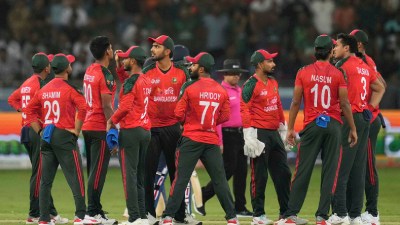State Guest
...

At the centre of the controversy is an amendment to the Representation of the People8217;s Act RPA, Section 3, under which a person can contest Rajya Sabha elections even from a state that he is not 8216;8216;ordinarily a resident8217;8217; of. One of the beneficiaries of this amendment is Prime Minister Manmohan Singh 8212; the Delhi resident is an Upper House MP from Assam.
The moot point is whether the RPA amendment has violated the 8216;8216;spirit8217;8217; as well as a 8216;8216;fundamental feature8217;8217; of the Constitution. In Britain, which has no written constitution, the parliament is supreme. But in India, the Constitution exists in writing and is supreme to Parliament and Supreme Court alike.
Some years ago, a five-judge Constitution bench dealing with J Jayalalithaa8217;s disqualification had said: 8216;8216;The Constitution is above the people8217;s will or mandate.8217;8217; It was responding to the argument that since Jayalalithaa8217;s AIADMK had won the Tamil Nadu Lok Sabha elections the 8216;8216;people8217;s will8217;8217; or mandate should prevail.
The bench said a person who had been stopped by the Election Commission from filing her nomination could not be sworn in as chief minister and added that the 8216;8216;people8217;s will8217;8217; was 8216;8216;subject8217;8217; to the Constitution and rule of law.
At issue now is the position of law as settled by the Supreme Court that a law cannot be at variance to the Constitution. Nayyar and Inder Jit have challenged the amendment to the RPA that paves the way for people to contest a Rajya Sabha election from any state.
WHEN Indira Gandhi amended the rule that required Lok Sabha candidates to be residents of as well as be registered as voters in the constituency from which they were contesting, the Supreme Court upheld her action saying elections to the Lower House were 8216;8216;direct8217;8217; and voters elected their representatives 8216;8216;directly8217;8217;. But elections to Rajya Sabha are 8216;8216;indirect8217;8217; and the 8216;8216;spirit8217;8217; of the Constitution is that an MP who belongs to the state from which he has been elected can serve its interests better.
Former Chief Justice of India CJI V N Khare feels Nayyar and Inder Jit have made out a 8220;prima facie8221; case. It was Justice Khare who, before his retirement, first heard the batch of petitions and directed that a Constitution bench should decide the matter since it involves an 8216;8216;important constitutional8217;8217; question.
Saying the issue needs to be settled 8216;8216;constitutionally8217;8217;, Khare added: 8216;8216;Our federal structure is that the interests of various linguistic, ethnic, tribal and other similar groups have to be served and hence the domicile requisite has been the basic feature of the federal structure.8217;8217;
Appearing for Nayyar, former Chief Justice of Delhi High Court Justice Rajindar Sachar said a legal provision cannot violate a constitutional mandate. He added that a law is subject to and has to be within constitutional limits. The RPA amendment to Section 3 8220;violates the principle of federalism, which is a basic structure of the Constitution8221;, Sachar said.
Fali Nariman, who is appearing for Inder Jit, argued along similar lines and said Parliament could not be insensitive to 8220;regional interests8221;.
Article 84 c deals with qualification for membership of Parliament either prescribed in that behalf or under any law made by Parliament. Accordingly, under the RPA, a candidate for election to the council of states should be 8220;ordinarily a resident8221; of the state he is contesting from. On all previous occasions, Rajya Sabha candidates have registered themselves as voters in the state from which they were contesting.
Now, even this requirement has been done away with, meaning Rajya Sabha and Lok Sabha candidates alike only need to be registered as voters in some state in order to contest elections.The Supreme Court has said that even if the Election Commission announces a schedule for the Rajya Sabha elections, the poll outcome would be subject to its judgment in the ongoing case.
- 01
- 02
- 03
- 04
- 05































